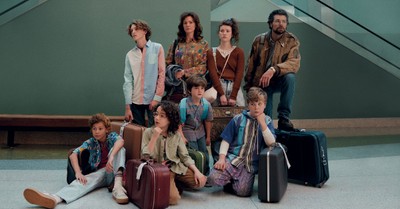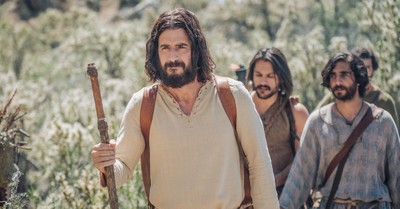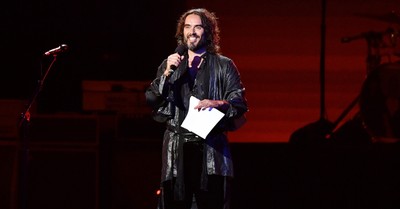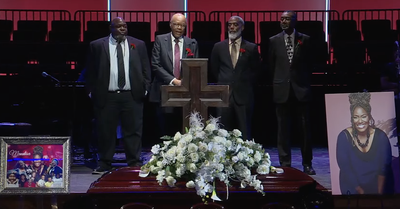In a recent interview with Crosswalk.com, Donna Rice Hughes offered some practical tips on protecting yourself, and your family, from the dangers of online pornography. Hughes is the author of Kids Online: Protecting Your Children In Cyberspace. She has served as spokesperson and senior adviser to FamilyClick.com and as the Communications Director and Vice President of Enough Is Enough, a non-profit educational organization whose mission is to make the Internet safe for children and families.
According to Hughes, if you've registered a domain name, protect it. Keep it updated, especially if it is a known name, and keep it renewed. As an example, "www.protectkids.com" is the site that Hughes just launched. "But that's the kind of domain name which, if I stopped working on Internet safety and let it lapse, would be a perfect domain for a pornographer to pick up," she explains.
If you use your own name in a domain, says Hughes, then it becomes critical to buy up the "dot coms" and the "dot orgs."
"I've had to do this - I've got Donna Rice Hughes, but I don't have Donna Rice. Somebody else has that. Fortunately, they haven't done anything with it yet, but who knows?"
Even cities aren't immune from foul play. According to an article in the Potomac Tech Journal, pornographers have registered, and are using, the name of a city in Maryland. Put in the name of one of our national institutions, and you'll be routed to a pornographic page. "I call them stealth sites," says Hughes.
"We don't have any laws dealing with this now," she continues. "In some cases of hijacking, the FTC has made some effort to deal with these issues, but we're really a long way off from any type of law enforcement. So my recommendation is always to think about prevention."
Use Filters
Hughes believes every parent should use Internet filtering if their children are online. "It's probably wise to use it for yourself too - especially if you have this as an area of temptation in your life," she advises. "Some of us are tempted with some things and some of us are tempted with other things. People know if they've got a problem in this area."
According to Chuck Colson, who likened cybersex to spiritual crack cocaine, one out of five adults have visited a sexually oriented website - close to 40 million people. Of those who identified themselves as "born again Christians," nearly 18 percent confessed visiting such sites.
Hughes has seen statistics that indicate 39 percent of pastors struggle with Internet pornography. "So I would encourage any man who falls into that category, and women for that matter, because people think it's just guys who get hooked on porn, it's not, it's women too - to get a filter."
Even if you are "the most disciplined Christian in the world," you could accidentally stumble across pornography, says Hughes, "and you never know if you are going to get hooked."
Filtering is a good defense, she adds. "It's like wearing your seat belt ... it's going to help ensure that you have a safe journey on the Internet." Especially for children. Viewing pornography can completely destroy a child's innocence and even be traumatic, Hughes explains. "We've seen kids, five or six years old, stumbling across hard core porn in school and having to go through a year or two of counseling because their innocence has been robbed. They've seen something not even normal a lot of the time. Some of it is bloody, violent and just down right disgusting."
At the Organizational Level
Within the past month, Hughes rolled out a new Internet safety website at www.protectkids.com. Her goal has been to create a comprehensive educational site regarding online dangers and solutions surrounding Internet pornography and predators. It is geared toward parents, educators, advocates, religious leaders, law enforcement and policy makers. There is also a section for youth and kids.
But her involvement with this issue goes back much further, to 1994, when she started working with a non-profit organization called Enough is Enough. "They were basically an anti-porn group but they weren't doing anything with the Internet because it was so young," says Hughes. "Nobody was aware of these kinds of issues; they were just starting to crop up."
Within a few weeks of being on staff, somebody showed Hughes some of the hard-core child porn and obscenity available on the news groups. Some of the bulletin board services also were beginning to advertise Internet sex. Hughes says, "I just went ballistic. I thought, 'This is going to be huge. The pornographers are going to take this thing over and it is going to be a real problem. And it's really going to be a problem with kids, because they're going to be much more savvy than their parents on the computer and the Internet.'"
Hughes then asked her boss at the time if she could pursue the issue. "We thought that if we could get on top of it, we could help cut it off at the pass. We did do a lot, as far as raising awareness. We probably were the premiere advocacy group nationally that brought the issue to the public and to Congress and the media back in 1995 and '96."
In those very early years, Hughes found herself as someone that the media and Congress looked to as having a little bit of expertise. "Of course, it was so new there really wasn't anyone with expertise," she adds. "But as you learn, and you grow, and you start to watch how this works, and start to work with people who are developing solutions, people dub you as an expert. That's how I got involved. It was a new problem and it was a niche problem that really didn't have any leadership yet."
Now it does. Many groups have jumped into the fight in the last few years. But in the early days, according to Hughes, "it was just a handful of us out there, feeling like we were banging our heads against the wall most of the time."
Enough is Enough got some of the early legislation passed, educated the media and worked with the first filtering companies. "It was a pioneering time," Hughes recalls. "There was a stage of education that fortunately we don't have to do anymore. People really do understand how bad it is now. Well, at least leaders do. Some parents don't.
"Sadly, many in the Christian community are still deceived about the real problems out there that their children are facing, or that their husbands are facing," Hughes concludes.










